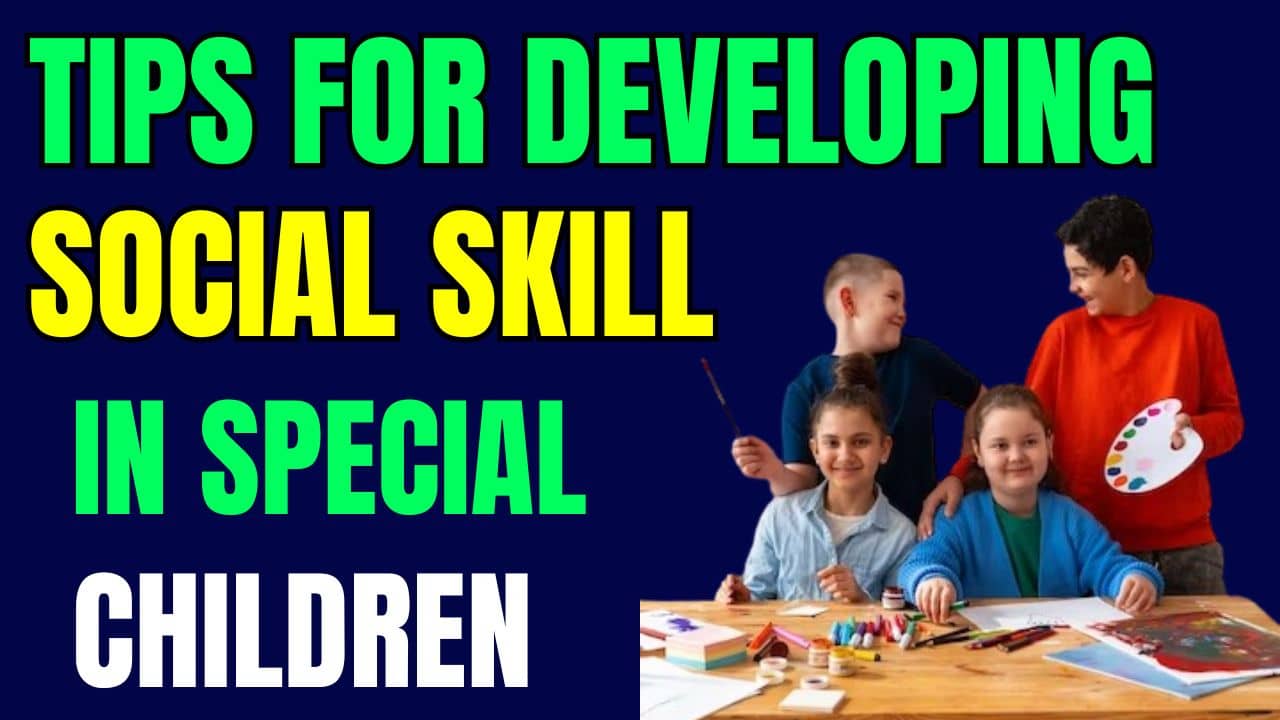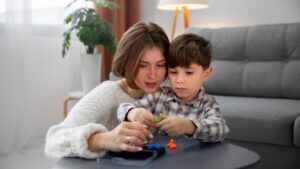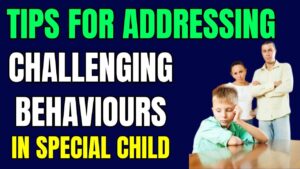Fostering social skills is paramount in supporting the holistic development of special needs children. By nurturing their ability to interact, empathize, and navigate social situations, we empower them to forge meaningful connections and thrive in diverse environments. In this guide, we’ll explore practical tips aimed at cultivating social skills in special children. From fostering communication and collaboration to promoting empathy and understanding, these strategies offer invaluable support for caregivers and educators alike. Join us as we embark on a journey to empower special needs children with the social skills they need to flourish.
1. Building social communication skills
Developing social communication skills is crucial to supporting individuals with Autism Spectrum Disorder (ASD) in building meaningful connections with others. This chapter explores strategies and interventions to enhance social communication skills, focusing on verbal and nonverbal aspects of social interaction.
1. Social Skills Training:
- Engage in structured social skills training sessions.
- Focus on teaching fundamental social skills such as eye contact, greetings, and turn-taking.
2. Visual Supports for Social Interactions:
- Use visual supports, such as social stories and visual schedules, to prepare for social interactions.
- Provide visual cues to help the individual navigate social situations.
3. Peer-Mediated Interventions:
- Facilitate interactions with neuro-typical peers.
- Encourage peer involvement in social activities and model inclusive behaviour.
4. Social Narratives:
- Create social narratives to explain social expectations and potential challenges.
- Use narratives to prepare individuals for new or unfamiliar social situations.
5. Video Modeling for Social Skills:
- Utilize video modelling to demonstrate appropriate social behaviours.
- Create videos or use existing resources to showcase positive social interactions.
6. Role-Playing and Rehearsal:
- Engage in role-playing activities to practice social skills.
- Rehearse common social scenarios to build confidence in real-life situations.
7. Structured Social Activities:
- Plan and engage in structured social activities.
- Choose activities that align with the individual’s interests and provide opportunities for social interaction.
8. Social Groups and Clubs:
- Encourage participation in social groups or clubs.
- Choose groups focusing on shared interests, providing a natural context for social communication.
9. Communication through Shared Interests:
- Capitalize on shared interests as a basis for communication.
- Encourage conversations and interactions Centred around common hobbies or topics.
10. Visual and Gestural Communication:
- Incorporate visual and gestural communication into social interactions.
- Use visual cues and gestures to enhance communication and convey meaning.
11. Social Scripts:
- Develop social scripts for common social scenarios.
- Provide individuals with scripts to guide their interactions in different contexts.
12. Emotion Recognition Activities:
- Engage in activities that focus on recognizing and understanding emotions.
- Use pictures, drawings, or facial expressions to practice identifying emotions.
13. Turn-Taking and Sharing:
- Teach and reinforce turn-taking and sharing in social interactions.
- Use visual cues or timers to signal transitions between individuals.
14. Social Communication Apps:
- Explore social communication apps that provide interactive and engaging activities.
- Choose apps that target specific social communication goals.
15. Encouraging Initiations:
- Foster the ability to initiate social interactions.
- Use prompts and positive reinforcement to encourage individuals to initiate conversations or activities.
16. Joint Attention Activities:
- Engage in joint attention activities to build shared focus.
- Use games or activities that require individuals to attend to and interact with a common point of interest.
17. Community Outings and Experiences:
- Plan community outings to provide exposure to different social situations.
- Gradually increase the complexity of outings to build social confidence.
18. Collaborative Goal Setting:
- Collaborate with individuals in setting social communication goals.
- Ensure that goals are achievable and aligned with the individual’s interests.
19. Social Reinforcement Systems:
- Establish a social reinforcement system to motivate positive social behaviours.
- Use a reward system or token economy to reinforce social successes.
20. Celebrating Social Achievements:
- Celebrate and acknowledge social achievements.
- Create a positive and supportive environment that recognizes progress and effort.
By implementing these strategies, parents can actively contribute to developing social communication skills in individuals with ASD. Tailoring interventions to the individual’s interests and strengths and consistent collaboration with therapists and educators fosters a holistic approach to building social communication abilities.





